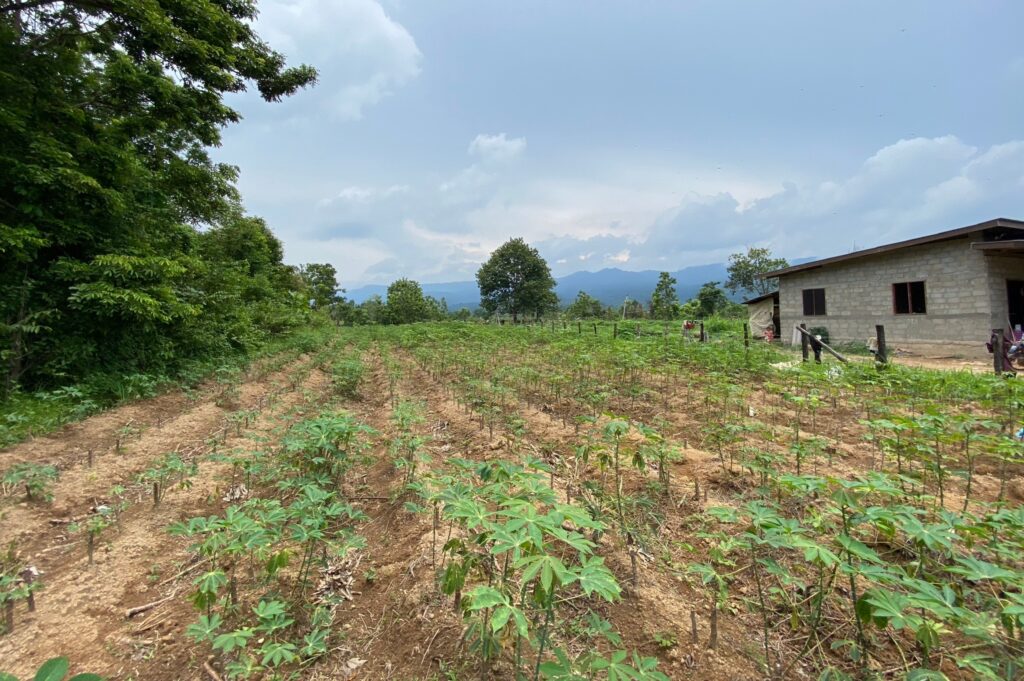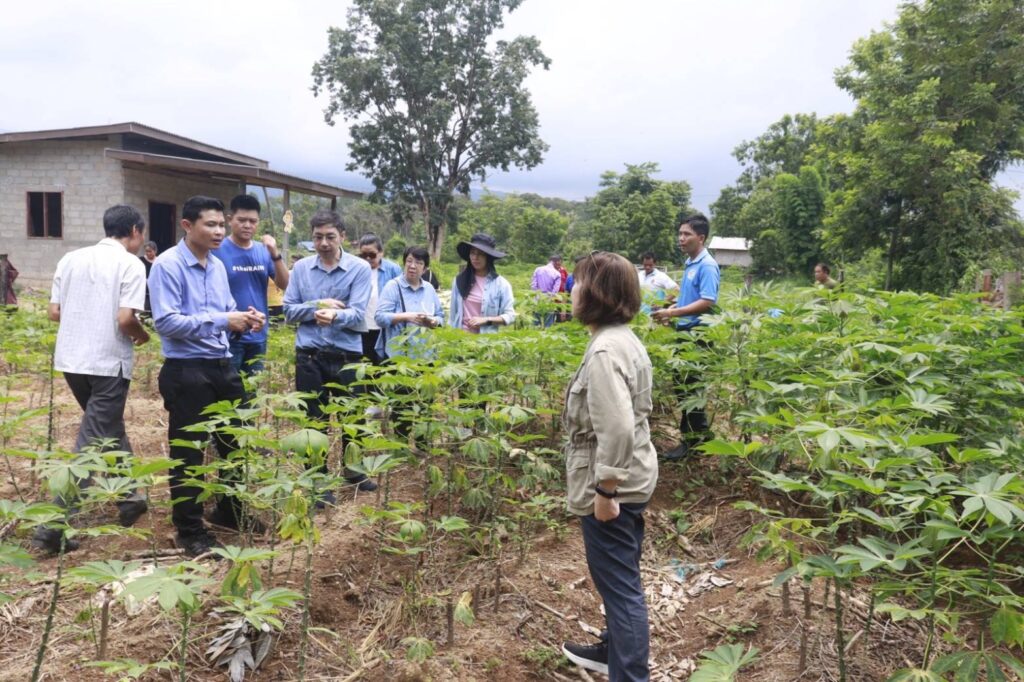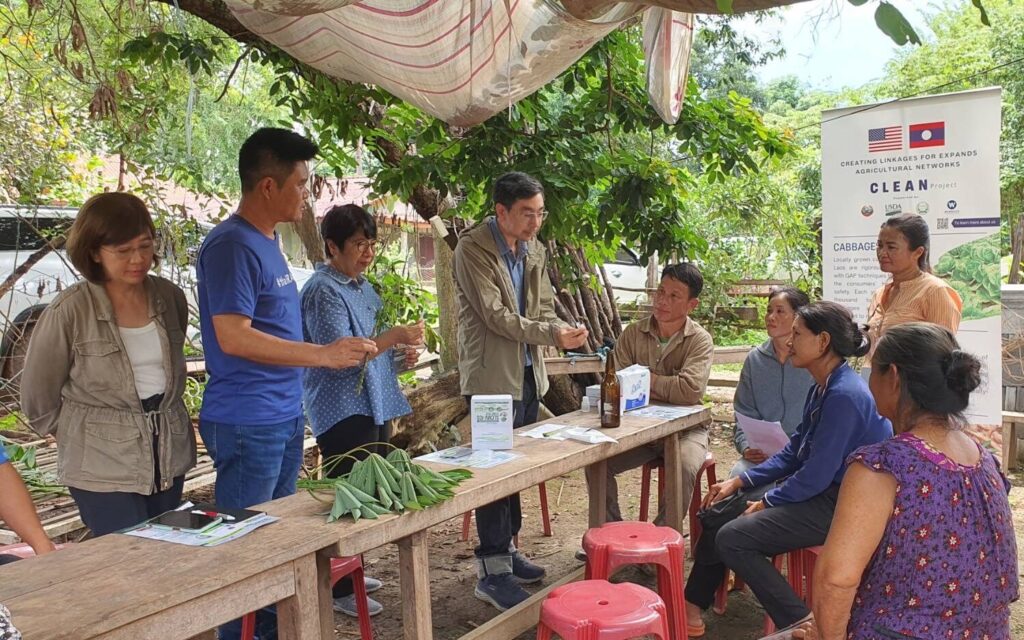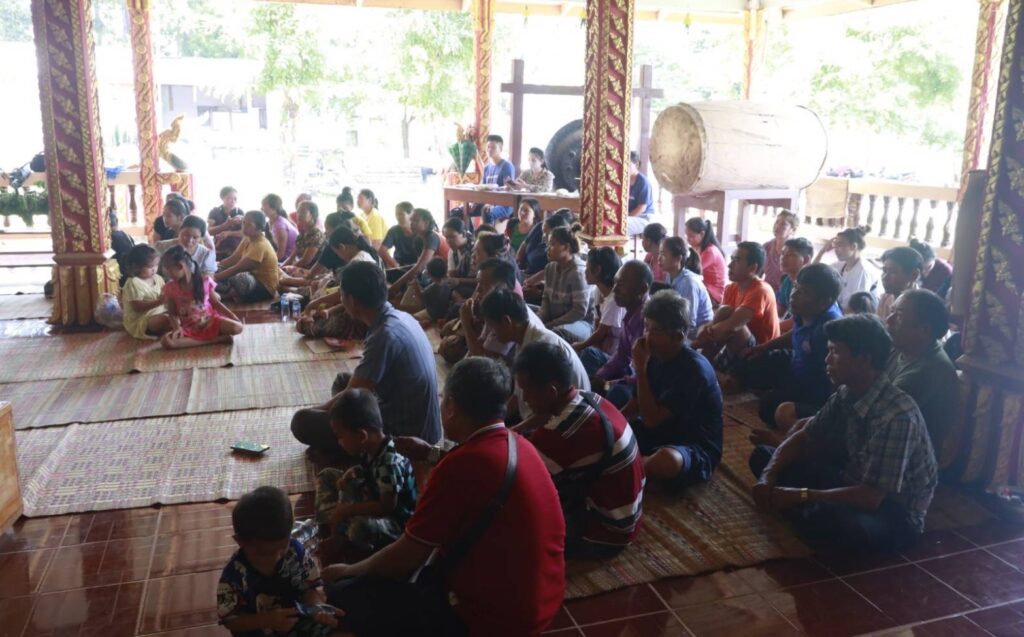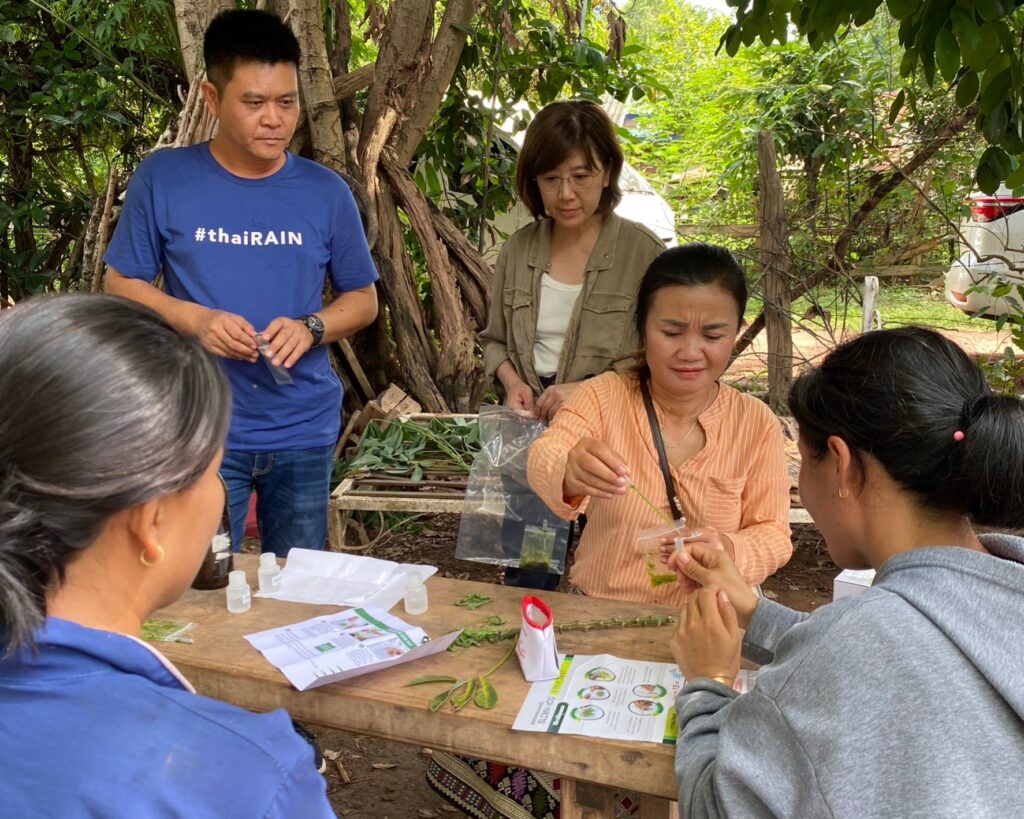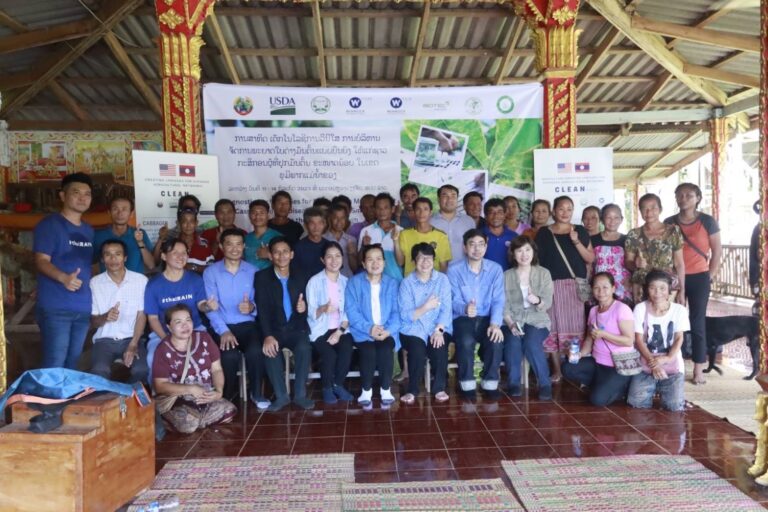
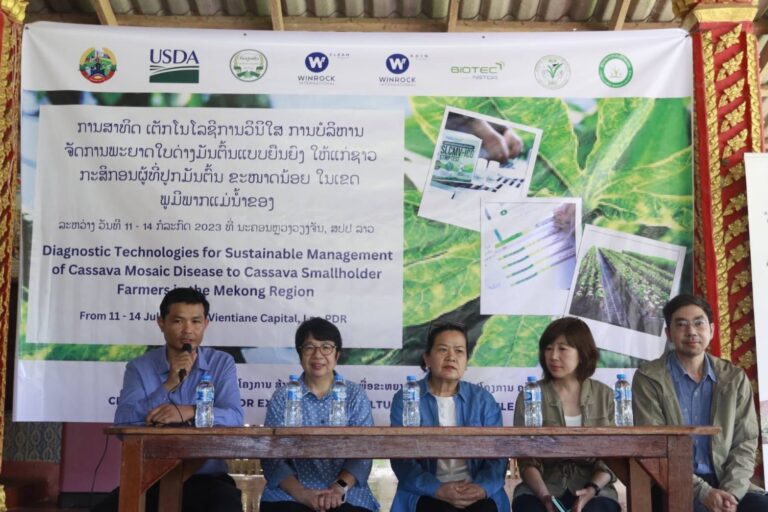
Dr. Oraprapai Gajanandana, Dr. Channarong Seepiban, and Dr. Saengsoon Charoenvilaisiri, members of BIOTEC’s Monoclonal Antibody Production and Application Research Team, were invited by Winrock International for field demonstration of their immunochromatographic strip test for detecting the Sri Lankan cassava mosaic virus (SLCMV) in Lao PDR during 11 – 14 July 2023. The research team successfully developed the technology that delivers highly accurate results in just 15 minutes and designs for easy field use. Its quick turnaround time makes it an ideal tool for disease screening and surveillance purposes.
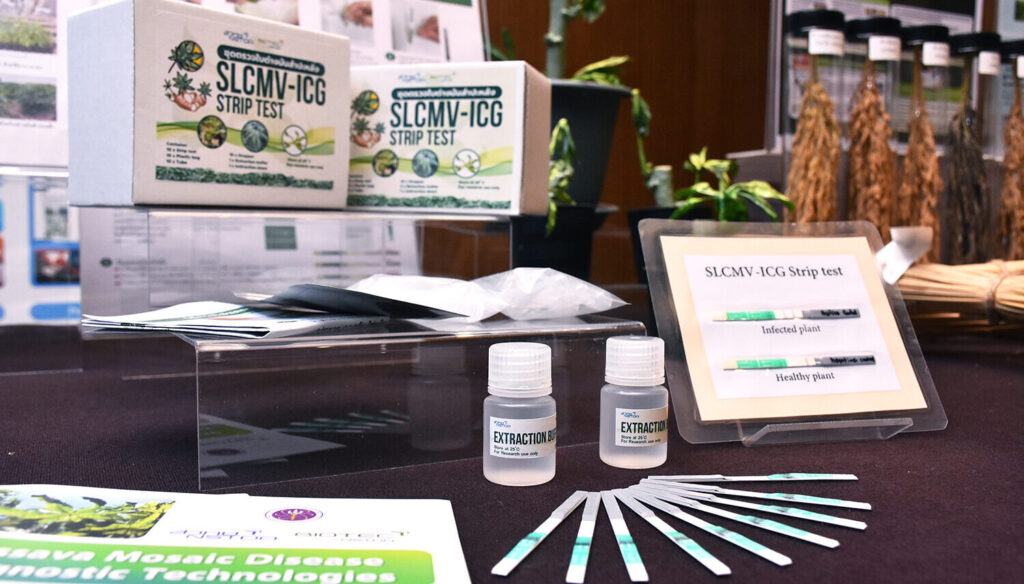
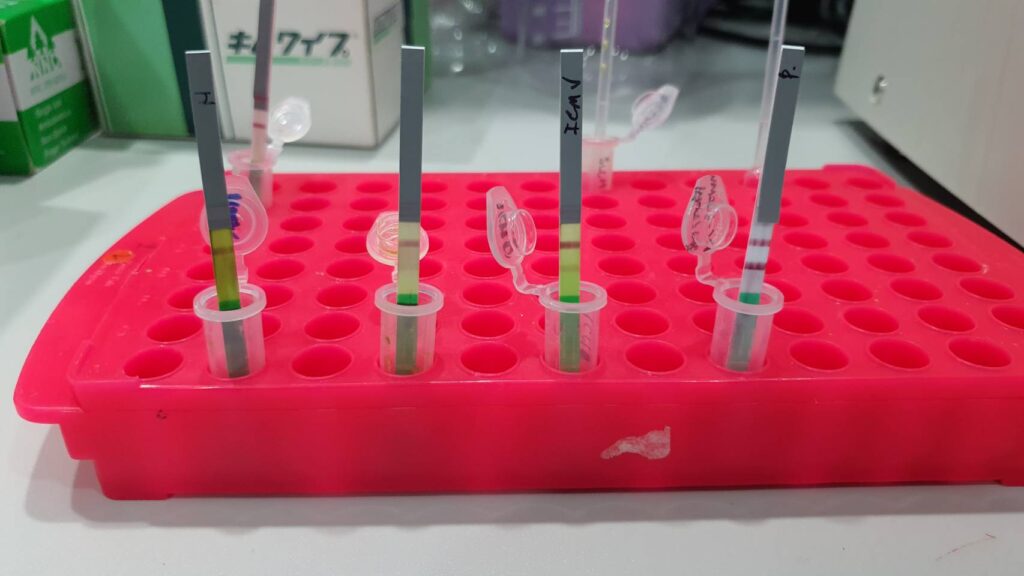
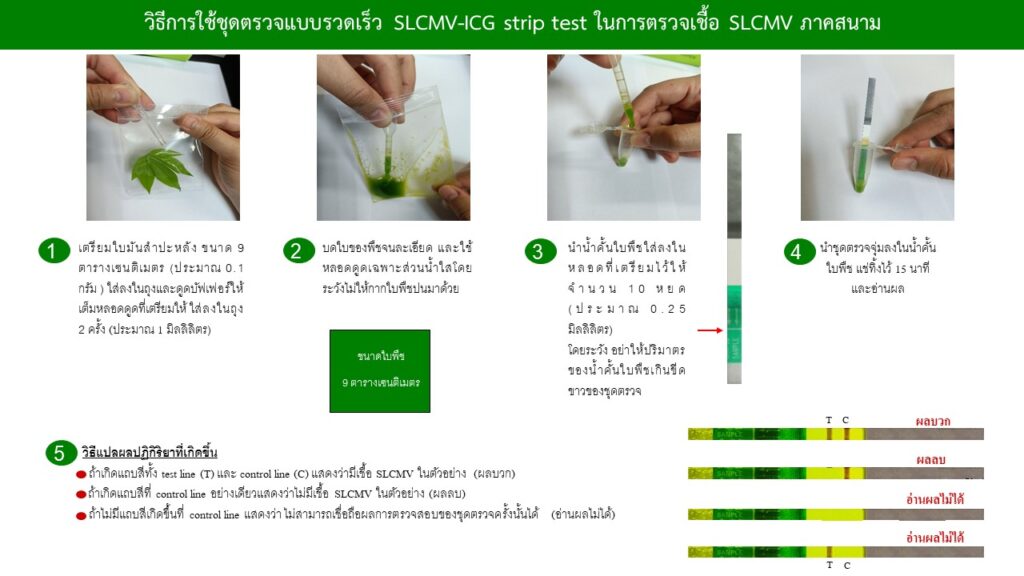
The strip test for SLCMV, developed by the BIOTEC research team, offers the following advantages to farmers, researchers, and policymakers:
- Rapid and Precise Results: Within a timeframe of 15 minutes, the test yields reliable results, enabling farmers and agricultural experts to take immediate action in response to potential infections.
- Designed for Field Use: Understanding the need for practicality, the test has been crafted to be user-friendly and suitable for on-site testing in the field. Its simple design allows even those with minimal training to perform the test effectively.
- Portability and Convenience: The compact and portable nature of the test makes it easily transportable to remote farming communities, where access to conventional diagnostic facilities may be limited.
The researchers were invited to demonstrate the technology to representatives from the Laos Department of Agriculture and Plant Protection Center, private sector firms, and cassava farmers in Lao PDR. Participants were recruited from four model communities in Vientiane to diversify the training outcome, including Fangdeng village in Pakgnuem district, Thachampa village in Xaythany district, Yainachaluen village in Sangthong district, and Houyla village in Sangthong district. The researchers also had a chance to visit NAFRI-Alliance of Biodiversity International and CIAT Joint Molecular Laboratory at the Rice and Cash Crops Research Centre in Vientiane.
Additionally, the BIOTEC research team successfully developed an enzyme-linked immunosorbent assay (ELISA) for detecting cassava mosaic disease to scientists from Lao PDR’s Department of Agriculture and Plant Protection Center. This assay demonstrates higher sensitivity compared to commercially available ELISA kits while being more cost-effective than imported reagents. The ELISA technique requires a laboratory with specialized scientific equipment and 1-2 days to obtain results. The potential collaborators have expressed keen interest in technology transfer and setting up an ELISA laboratory in Lao PDR.
The field demonstration is part of the Regional Agriculture Innovation Network (RAIN) project; it is funded by the Food for Progress Program of the United States Department of Agriculture (USDA) and implemented by Winrock International with BIOTEC-NSTDA as a collaborator. RAIN project aims to expand the adoption of climate-smart production practices by 30,000 farmers through the creation of a regional knowledge hub. RAIN will identify, validate, scale, and share climate-smart technologies and practices that increase productivity, profitability, and trade opportunities in the Thai agriculture sector, while simultaneously reducing greenhouse gas emissions and natural resource depletion.
“This collaborative visit to Lao PDR has been an eye-opening journey. Witnessing the cutting-edge research being conducted here and exchanging ideas with farmers and experts in the field has been valuable for our research endeavors back home,” said Dr. Gajanandana, the team lead behind this technology. Dr. Gajanandana continued, “Our team is eager to collaborate with privates, governments, and organizations to ensure the widespread adoption of this innovative technology, with the ultimate goals of combating cassava diseases and bolstering cassava resilience.”
